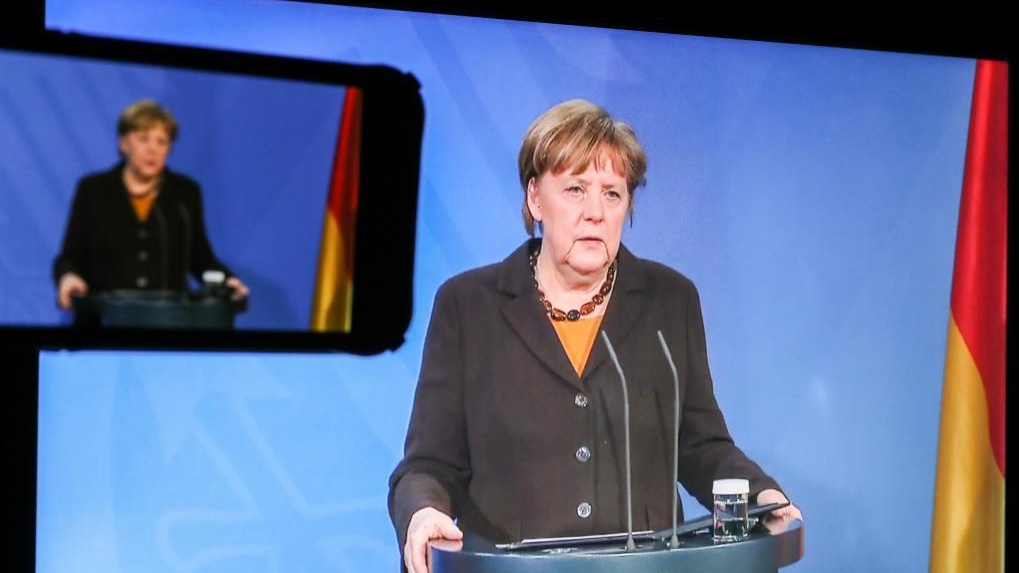
German Chancellor Angela Merkel attends a press conference after a meeting of German federal and state governments on AstraZeneca vaccine in Berlin, Germany, March 30, 2021. /Xinhua
German Chancellor Angela Merkel attends a press conference after a meeting of German federal and state governments on AstraZeneca vaccine in Berlin, Germany, March 30, 2021. /Xinhua
The AstraZeneca COVID-19 vaccine should generally only be used for people aged 60 and over from Wednesday, German federal and state governments decided Tuesday evening.
People aged under 60 could be vaccinated with the AstraZeneca jab "at the doctor's discretion and in the case of an individual risk analysis after careful explanation."
The decision was made on the basis of the currently available data on the occurrence of rare but very severe thromboembolic side effects, which occur four to 16 days after vaccination, mainly in people aged under 60 years.
Regarding a second dose of the AstraZeneca vaccine to young people who have already received the first dose, Germany's Standing Commission on Vaccination will issue additional recommendations by the end of April, according to a statement from the institution.

A medical personnel prepares an AstraZeneca COVID-19 vaccine shot as the spread of the COVID-19 continues, in Maintal, Germany, March 24, 2021. /Reuters
A medical personnel prepares an AstraZeneca COVID-19 vaccine shot as the spread of the COVID-19 continues, in Maintal, Germany, March 24, 2021. /Reuters
Daily COVID-19 infections in Germany continued to rise as 9,549 new cases were registered within one day, around 2,000 more than one week ago, the Robert Koch Institute (RKI) announced on Tuesday.
To date, more than 2.79 million COVID-19 infections have been officially registered in Germany since the outbreak of the pandemic. The death toll climbed to 76,093 on Tuesday, according to RKI.
Germany is not alone in restricting the use of the AstraZeneca vaccine, as France and Canada paused the vaccination for people under 55.
Many European countries briefly stopped using AstraZeneca's vaccine earlier this month while investigating rare cases of blood clots.
Both the European Medicines Agency and the World Health Organization said this month the benefits of AstraZeneca's vaccine outweighed the risks.
Nearly all countries have since resumed use of the vaccine.
(With input from Xinhua, Reuters)

